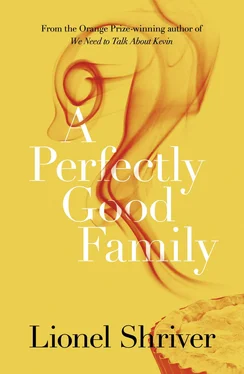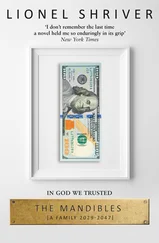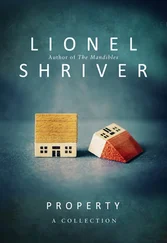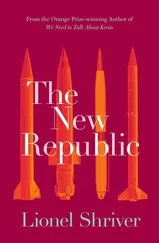“Uh-huh.” I picked a tendon from my teeth. “Since Oakwood has gentrified, this place has appreciated by a factor of several times. I doubt you’ll have the resources.” I found myself hoping that he would not. “What’s Plan B?”
“Well, you and I could buy Mordecai out together,” said Truman promptly.
“Uh-huh.”
“And then, little by little, after I finish my degree and get a job, I could pay you off and eventually you’d get your money, I promise. We could even draw up a contract, with some moderate interest …”
“Uh-huh.” I folded my arms. “In any case, you want to be the one who owns Heck-Andrews. At the end of the day.”
“Well.” He shrugged. “Yeah.”
“But it’s my house, too.”
“In a way.”
“Not in a way . Legally, emotionally, historically—I grew up here, they were my parents as well, and it is partly my house.”
“Okay!” He backed off, but he still didn’t appear to accept that I had, much less Mordecai had, any legitimate claim on what he had already, our mother two weeks dead, assumed as his own property. “The main thing is, we should try and keep it in the family. The last thing we want is to have to sell. Right?”
I didn’t answer.
“Right, Corlis?” He was panicking.
It’s chilling how clinical one can be in the midst of grief, but I had given this matter some thought. I did figure Mordecai would want the money, that Truman wouldn’t come into enough liquid assets to buy us both out, and I could conceivably force the house on to the market. Just as Truman’s impulse with Mordecai and the Britannicas was to deny him the prize, I was tempted to take Heck-Andrews from Truman precisely because it was the one possession he most desired.
“I might go in with you.” I tapped my fork on the table. “But not with the understanding that you eventually buy my share. If I’m going to have a half-interest in this property, I’m going to stay interested.”
Truman looked mystified, and paused in his hoovering of rice. “Why? You live in London.”
Averil mumbled, “Ask her why she brought six pairs of jeans.”
“Don’t you?” he pressed.
“And why she packed shorts. And summer dresses. In November.” Averil was talking to her plate.
I tossed my balled napkin at my chicken bones. “As of today I live in Raleigh.”
I’d fled this town with such desperation that the statement wallowed in my ears with sickening fatalism. The Myth of the Eternal Return: there was no getting away, was there? I felt like one of those paddle balls on an elastic string; the further I bounced away, the harder I would land smack back on my staple.
“Where in Raleigh?”
I rolled my eyes. “I’ve been evicted. For now, this is the only place I have to go.”
My brother’s jaw jutted forward, like my father’s. “Don’t you think you might have asked?”
“Asked? Unless Hugh appoints us otherwise tomorrow, I just inherited a third of this place. Why would I need your permission to live in my own house?”
Averil had started clearing the table, pitching silverware on to stacked plates from inches above, crash-crash; then she made quite a project out of bunching all the napkins into a single, furiously tight wad.
“Because other people live in it,” said Truman.
“If this place is so massive,” I reminded him, “that Father wanted to donate half of it to the homeless, it’s obviously big enough for you and me.”
“But I thought you had this great career going. That you had a gallery and you were going to be famous and you’d made your real life in Britain. All that about applying to British immigration for ‘settlement’ … How you liked your new flatmates … And a sidewalk seems like a pavement now.”
“You mean you thought you’d got rid of me.”
“I didn’t—”
It happened again, up-side of the head: I was starting to cry. Averil shot me a quick dirty look, as if tears were cheating. As punishment, she cleared my wine glass.
“What did you mean,” Truman prodded, “you’ve been ‘evicted’?”
When I found the spacious flat in South Ealing I was patching together a living from bootlegging films off the BBC for third-world black-market videos, and part-time messengering in town on a gasping second-hand scooter. At thirty-four, I was wearying of odd jobs and empty pockets for the sake of “my work,” and my attitude toward my higher calling had grown sardonic. However, I’d had just enough encouragement from selling the odd piece privately that I hadn’t, incredibly, given up. The pretension of being an Artist may have made me cringe, and at low-rent parties I never introduced myself as anything but a bohemian ex-pat scavenger. Still, alone with mud, refining a plane or tapering those delicate fingers, I did not want a drink, a fag, a nap, or a chat; sculpting was the single thing I did that was all I wanted to be doing while I was doing it.
What’s more, I savored that my income was illegal. From girlhood I had been a sneak. For four years I’d limped by on tourist or student visas and wasn’t officially allowed to work; I was in my element under the table.
So after I’d made a hash of one more live-in relationship, I may have wished myself beyond the stage of communitarian arrangements with names on milk cartons, but I could not afford a flat on my own, full stop. I posted for flatmates at universities. I knew it was safer—and wouldn’t it have been—to advertise for females, but girls bored me and I grew up flanked by boys.
I had several takers, so I must have selected the winning couple with some care. I don’t know what system I applied—the two men were not in the least alike.
Andrew Finlay was a grad student in political science at the London School of Economics, a scrawny bookish-looking boy with sharp shoulders and tapered wrists. His body was knobby and perverse, with a prominent Adam’s apple and double joints—his elbows bent backwards. Though twenty-four, he looked twelve, an effect he encouraged by wearing outsized overalls bibbing harlequin jumpers, trouser cuffs rolled high to expose rumpled socks and chunky shoes. His facial features were narrow and weaselly, dwarfed by wide National Health horn-rims. Though his grin was sly and he laughed knowingly from the side of his mouth, it didn’t take long to ferret out that Andrew had had meager experience with women.
Peter Larson was a broader man, still well my junior but older than Andrew by six years. He was a Glaswegian, and it took me weeks of deciphering his accent to understand that his ostensible ambitions were in journalism. Such a future was hard to picture, save the bit about boozing up sources at late-license pubs. Peter was on the hapless side, as he cheerfully admitted. He subbed for the Daily Mail and the Evening Standard for a month at a time, but often lost the job for mitching his morning slot, hung over. He was frequently late with his rent, but it was hard to get angry with him; that Peter was unreliable was at the heart of his appeal. While Andrew’s jokes were contrived around esoteric puns or the latest cabinet scandal, Peter’s humor was bawdy, his laughter salacious and inclusive. Besides, he was handsome, a footballer only recently gone to seed, with a square jaw and strong stomach muscles that would bear up under years’ more abuse. I knew how he’d end up: a potbellied, pasty would-have-been blustering through tall tales to avoid paying his round, but foresight inspired me to make the most of his company before he declined to welcher and nuisance.
Since Peter would vanish for days on end, on benders or fast-burn romances he’d never say, I spent a lot more time with Andrew. The younger man was light enough to share my scooter, on which the two of us would top-heavily weave to Stop ’n’ Shop for provisions, to return flapping with plastic bags. His hands resting deftly on my hips sent a warm glow up the back of my neck. Though I might have dismounted grateful to have made it home without capsizing, I’d feel doleful when our mission was accomplished, already chafing to run out of Marmite—his favorite late snack with cold, burnt toast.
Читать дальше












